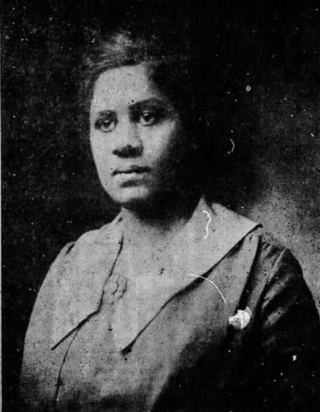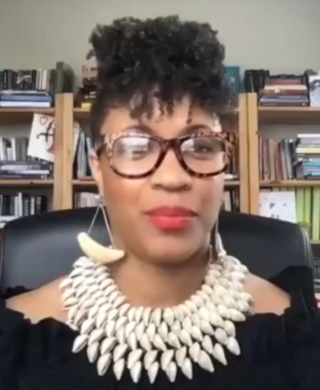
Columbia is a city in the U.S. state of Missouri. It is the county seat of Boone County and home to the University of Missouri. Founded in 1821, it is the principal city of the five-county Columbia metropolitan area. It is Missouri's fourth most-populous and fastest growing city, with an estimated 128,555 residents in 2022.

The Mid-America Intercollegiate Athletics Association (MIAA) is a college athletic conference affiliated with the National Collegiate Athletic Association (NCAA) at the Division II level, headquartered in Kansas City, Missouri. Its fourteen member institutions, of which all but one are public schools, are located in Kansas, Missouri, Nebraska, and Oklahoma, with an Arkansas school joining in July 2024. The MIAA is a 501(c)(3) nonprofit organization incorporated in Missouri.

Callaway County is a county located in the U.S. state of Missouri. As of the 2020 United States Census, the county's population was 44,283. Its county seat is Fulton. With a border formed by the Missouri River, the county was organized November 25, 1820, and named for Captain James Callaway, grandson of Daniel Boone. The county has been historically referred to as "The Kingdom of Callaway" after an incident in which some residents confronted Union troops during the U.S. Civil War.

Stanley Miller Williams was an American contemporary poet, as well as a university professor, translator and editor. He produced over 25 books and won several awards for his poetry. His accomplishments were chronicled in Arkansas Biography. Williams was chosen to read a poem at the second inauguration of Bill Clinton. One of his best-known poems is "The Shrinking Lonesome Sestina." He was the father of American singer-songwriter Lucinda Williams.
Carl Neumann Degler was an American historian and Pulitzer Prize-winning author. He was the Margaret Byrne Professor of American History Emeritus at Stanford University.

Catharine Drew Gilpin Faust is an American historian who served as the 28th president of Harvard University, the first woman in that role. She was Harvard's first president since 1672 without an undergraduate or graduate degree from Harvard and the first to have been raised in the South. Faust is also the founding dean of the Radcliffe Institute for Advanced Study. She has been ranked among the world's most powerful women by Forbes, including as the 33rd most powerful in 2014.
Michele Gillespie is the Provost and Presidential Endowed Professor of Southern History at Wake Forest University in Winston-Salem, North Carolina. She specializes in American history, focusing on gender, race, class, and region in the American South. In 2005, she served as president of the Southern Association for Women Historians. She is series co-editor of New Directions in Southern History, published by the University Press of Kentucky, with William Link.
Catherine Clinton is the Denman Professor of American History at the University of Texas at San Antonio. She specializes in American History, with an emphasis on the history of the South, the American Civil War, American women, and African American history.
Robert Hugh Ferrell was an American historian and a prolific author or editor of more than 60 books on a wide range of topics, including the U.S. presidency, World War I, and U.S. foreign policy and diplomacy. One of the country's leading historians, Ferrell was widely considered the preeminent authority on the administration of Harry S. Truman, and also wrote books about half a dozen other 20th-century presidents. He was thought by many in the field to be the "dean of American diplomatic historians", a title he disavowed.
Jacquelyn Dowd Hall is an American historian and Julia Cherry Spruill Professor Emerita at the University of North Carolina at Chapel Hill. Her scholarship and teaching forwarded the emergence of U.S. women's history in the 1960s and 1970s, helped to inspire new research on Southern labor history and the long civil rights movement, and encouraged the use of oral history sources in historical research. She is the author of Revolt Against Chivalry: Jessie Daniel Ames and the Women’s Campaign Against Lynching;Like a Family: The Making of a Southern Cotton Mill World and Sisters and Rebels: The Struggle for the Soul of America.
Jacqueline Anne Rouse (1950-2020) was an American scholar of African American women’s history. She is most widely known for her work on Southern black women and their activism from the turn of the twentieth century to the Civil Rights Movement.
Martha Porter Saxton was an American professor of history and women's and gender studies at Amherst College who authored several prominent historical biographies.
White Southerners, from the Southern United States, are considered an ethnic group by some historians, sociologists and journalists, although this categorization has proven controversial, and other academics have argued that Southern identity does not meet the criteria for definition as an ethnicity.

Ora Brown Stokes Perry (1882–1957) was an American educator, probation officer, temperance worker, suffragist, and clubwoman based in Richmond, Virginia.
Sarah L. Wilkerson Freeman is an American historian and curator who is a professor of history at Arkansas State University. She co-edited Tennessee Women: Their Lives and Times, a two-volume series with historian Beverly Greene Bond and has written on Southern women's activism from the Progressive Era to the McCarthy Era. Her curatorial work has focused on little-known chapters in Southern history, which included the fluidity of race, gender, and sexuality in 1950s New Orleans and Japanese internments in Arkansas in the 1940s.

Sasha Deborah Turner is a Jamaican-American historian who is an associate professor of history of at the Johns Hopkins University Department of the History of Medicine. Her research considers the history of the Caribbean, with a particular focus on enslavement and colonialism. She is co-president of the Coordinating Council for Women in History.
Kim E. Nielsen is an American historian and author who specializes in disability studies. Since 2012, Nielsen has been a professor of history, disability studies, and women's studies at the University of Toledo. Nielsen originally trained as historian of women and politics, and came to disability history and studies via her discovery of Helen Keller's political life.
Nupur Chaudhuri is an Indian academic who has lived and worked in the United States since 1963. She was one of the early members of the Coordinating Council for Women in History and served as editor of its newsletter from 1975 to 1980; as executive secretary and treasurer from 1981 to 1987, and president from 1995 to 1998. Chaudhuri drafted the guidelines to increase diversity and inclusion and eliminate racism and sexism for the National Women's Studies Association in 1979. She was elected to membership in the teaching division of the American Historical Association in 1997. Since 2010, the Coordinating Council for Women in History annually awards a prize in her honor.
The Coordinating Council for Women in History is a national professional organization for women historians in the United States. It was founded in 1969 as the Coordinating Committee on Women in the Historical Profession to promote recruitment and scholarship among women historians. It is an affiliate organization of the American Historical Association.

Mollie C. Davis was an American activist and academic. She was active in both the Civil Rights Movement and the Women's liberation movement of the 1960s and 1970s. Her activism led her into the push to develop women's studies programs. She was one of the founders of the Southern Caucus of Women in History, later known as the Southern Association for Women Historians, in 1970, serving as its president from 1971 to 1973. In 1973, she served as co-chair of the Conference Group on Women's History and from 1983 to 1985 was co-chair of the Coordinating Committee on Women in the Historical Profession, both of the precursor organizations of the Coordinating Council for Women in History. Davis was on the executive council of the Southern History Association from 1992 through 1994.









